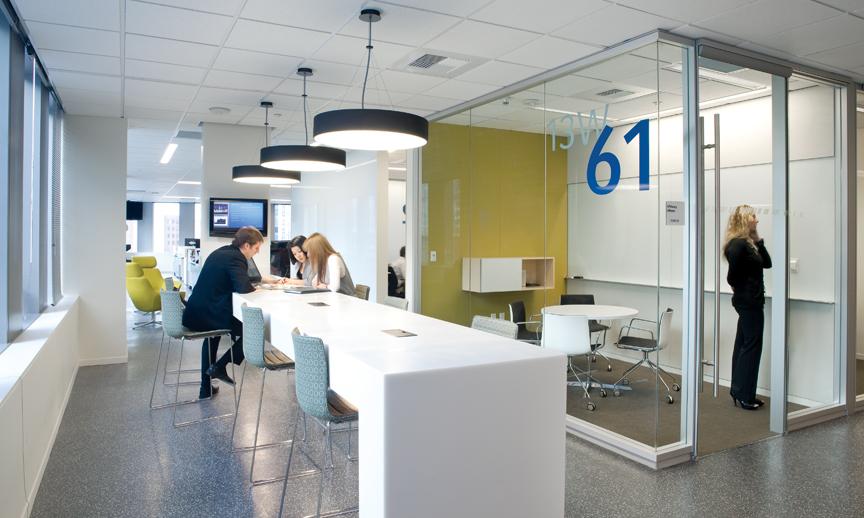Companies throughout America are investing in leading-edge technology in order to boost worker productivity, according to a Workplace of the Future survey.
Key findings of the survey include ninety percent of companies plan to increase investment in technology; cloud computing is a strategy 46% of companies are currently employing; the majority of companies, 54%, are using social media networks to engage employees; and top knowledge recruitment factors include offering flexible workplace options (41%) and leading-edge technology (39%).
“Revolutionary emerging technologies are transforming corporate real estate and changing the game for corporate occupiers,” said Peter Miscovich, managing director, corporate solutions, Jones Lang LaSalle, Chicago. “Emerging technologies are enabling new levels of workplace optimization and utilization as well as boosting productivity to levels never seen before in global organizations, leading knowledge workers into new frontiers of high performance collaboration and innovation.”
The survey was administered to approximately 30 leading U.S. companies and design firms by Teknion, a Toronto-based office furniture designer and manufacturer, revealed that nearly 90% plan to increase their investment in productivity-enabling technologies such as voice-activation and sophisticated video conferencing by 2015. The survey also found that by 2015, the standard of square feet allocated per employee is expected to drop from 200 to estimates ranging from 50 to 100 square feet per person dependent upon the industry sector. Workplace utilization factors will increase to 85% versus the 35 to 50% levels of today.
To increase space utilization, companies are employing several strategies including:
- More open, collaborative workspaces with less individual offices (77%).
- Densification of individual workspaces within the corporate office (62%).
- Reduce square footage footprint through disposition (54%).
- More employees working remotely from home sites, satellite sites, or client sites (46%).
- Mobile working programs that include desk-sharing and co-working spaces (31%). BD+C
Related Stories
| Nov 2, 2011
Mega deals drive 28% increase in global engineering and construction merger and acquisition value
Financial investors lead mega deal activity, China most active country in global domestic deals.
| Nov 2, 2011
Alexandria Real Estate Equities, Inc. breaks ground on Alexandria Center in Cambridge, Mass.
307,000-sf building to be house to executive offices of Biogen Idec.
| Nov 2, 2011
CRSI’s Manual of Standard Practice now available
This resource contains information on recommended industry practices for estimating, detailing, fabricating, and placing reinforcing steel for reinforced concrete construction.
| Nov 2, 2011
John W. Baumgarten Architect, P.C, wins AIA Long Island Chapter‘s Healthcare Award for Renovation
The two-story lobby features inlaid marble floors and wood-paneled wainscoting that pays homage to the building’s history.
| Nov 2, 2011
Jacobs announces acquisition of KlingStubbins
Jacobs Engineering Group Inc. announced that it has acquired KlingStubbins. Officials did not disclose the terms of the agreement. Jacobs' acquisition of KlingStubbins, which has approximately 500 employees located in the United States and Asia, particularly enhances the Company's capabilities in design. KlingStubbins provides professional services in planning, architecture, engineering and interiors.
| Nov 1, 2011
Perkins Eastman opens office in San Francisco
Located at 23 Geary Street in the One Kearny building, the 8,100 sf office will accommodate a growing staff of 45.
| Nov 1, 2011
Sasaki expands national sports design studio
Sasaki has also added Stephen Sefton to the sports design studio as senior associate.
| Nov 1, 2011
Holcim awards winners for North America announced
A socio-architectural project to create regional food-gathering nodes and a logistics network in Canada's high arctic territory won the top prize for North America of $100,000.
| Oct 27, 2011
iProspect selects VLK Architects for new office design
Company growth prompted iProspect to make the decision to move to a new space.
















